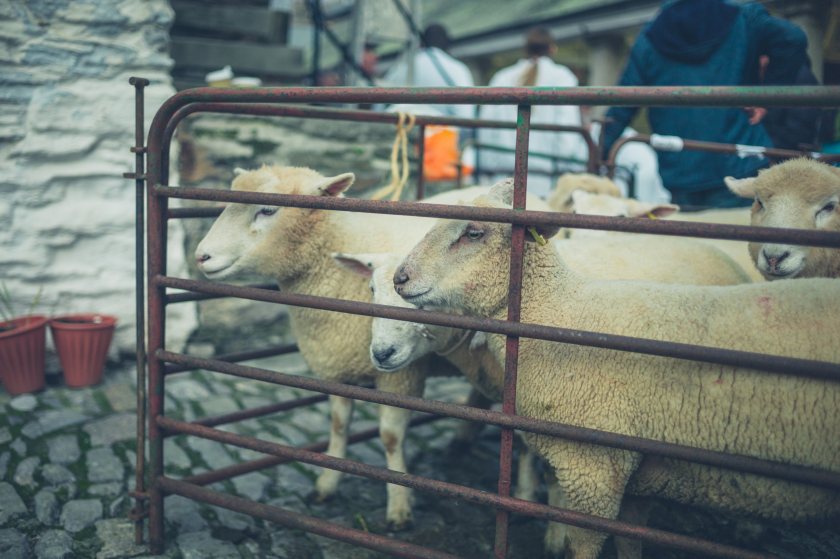
A major boost for farming businesses and livestock markets has been announced, with England and Wales now operating under one bluetongue zone to restore confidence and cross-border trade.
From today (10 November), both countries will function as a single bluetongue BTV-3 restricted zone (RZ), removing the hard border that has caused major challenges for auction marts and farmers since the outbreak began.
There have been 160 cases of bluetongue in Great Britain during the 2025 season, which began in July. In England, 147 cases have been confirmed — including 141 of only BTV-3, one of only BTV-8, and five cases where both strains were present. Wales has recorded 13 cases of BTV-3, while there have been no cases in Scotland.
While industry leaders remain cautious, with hopes that no new variants emerge in spring 2026, the Livestock Auctioneers’ Association (LAA) said the move marks a turning point for confidence and trade.
At the association’s AGM, farmers and rural businesses recognised the heavy impact of the restrictions and called for stronger contingency planning in future.
Matthew Nicholls, director of Sunderlands Marts and Wales LAA vice chair, said the changes were welcome but “the impact of the restricted movements has been colossal.”
He explained that his business was “around 15,000 sheep down because of bluetongue”, with “thousands fewer breeding ewes and significant losses in throughput.”
Managing marts on both sides of the border — including Hereford, Builth Wells and Talgarth — Nicholls said cross-border trade had effectively become a “two-tier system”.
Welsh buyers had been unable to purchase from England, creating sharp price differences. “Prices in Builth Wells were up to £100 a head higher than in England simply because Welsh farmers were forced to buy from a smaller breeding pool,” he said.
He added that the logistical and financial strain had been immense. “We’ve had to double our workforce to run two sales on the same day — one in England and one in Wales — splitting 9,000 sheep between Hereford and Builth instead of holding one sale under one roof. It’s been a logistical nightmare and mental strain for everyone involved.”
Nicholls welcomed the relaxation but said it came too late to rescue this trading season. “Scotland showed foresight by easing restrictions in September. While nobody wants bluetongue, the negative economic impact has far outweighed any perceived risk,” he said.
“Hundreds of thousands of pounds have been lost across the industry, and it’s been a devastating autumn for markets, auctioneers and farmers alike.”
Charlotte Baxter of Thame Mart said the Shearwell Thame Summer Sheep Fair, a major cross-border event, had been hit hard. “For the last 20 years, more than 3,000 breeding sheep sold have gone to Welsh buyers. This year, that number was zero,” she said.
Ted Ogden, auctioneer at Skipton, added that northern marts had also suffered as Welsh buyers were unable to travel south to buy grazing stock. “It’s had a huge effect on northern trade,” he said.
“Sheep that would normally move south into Wales for finishing simply couldn’t. That’s not just bad for farmers, but for the entire network of northern marts.”
